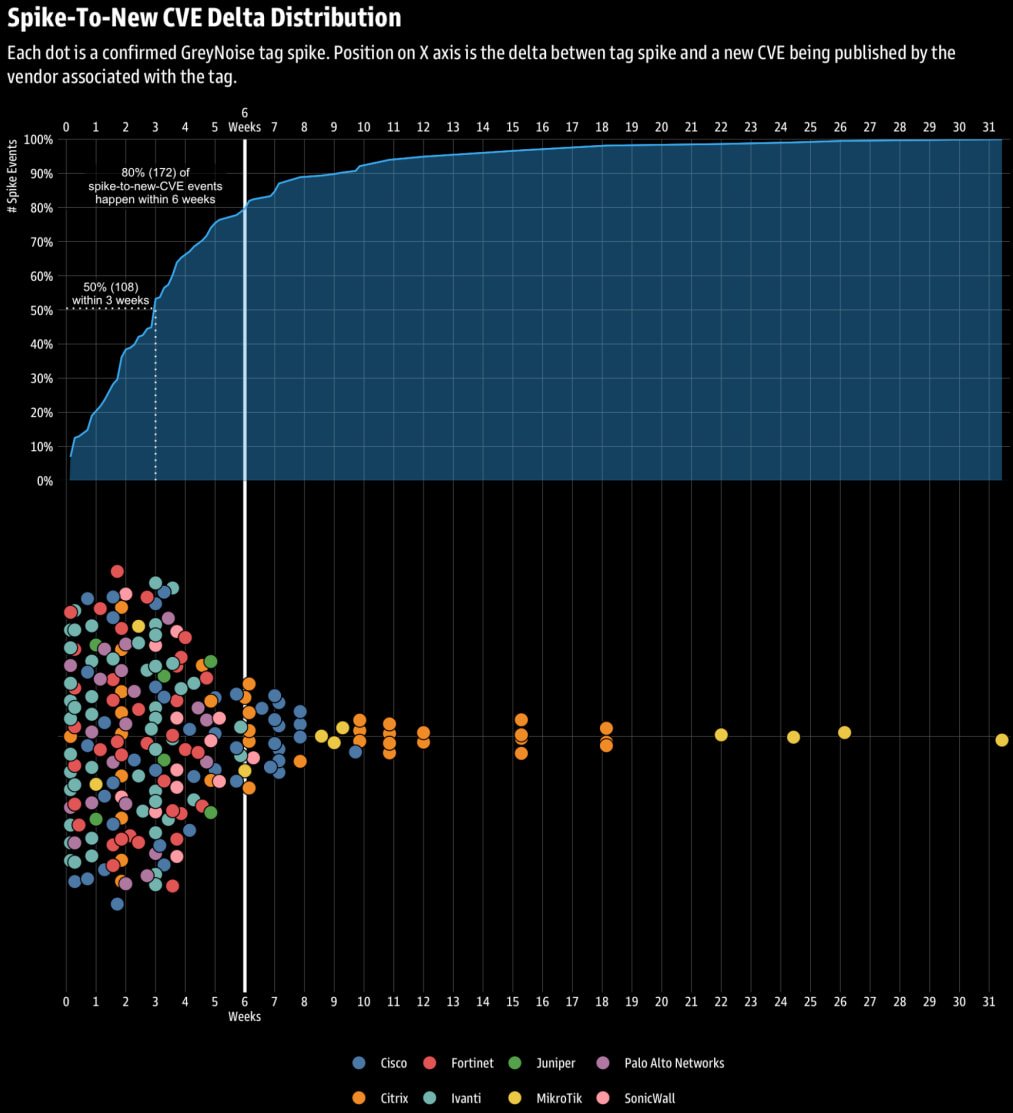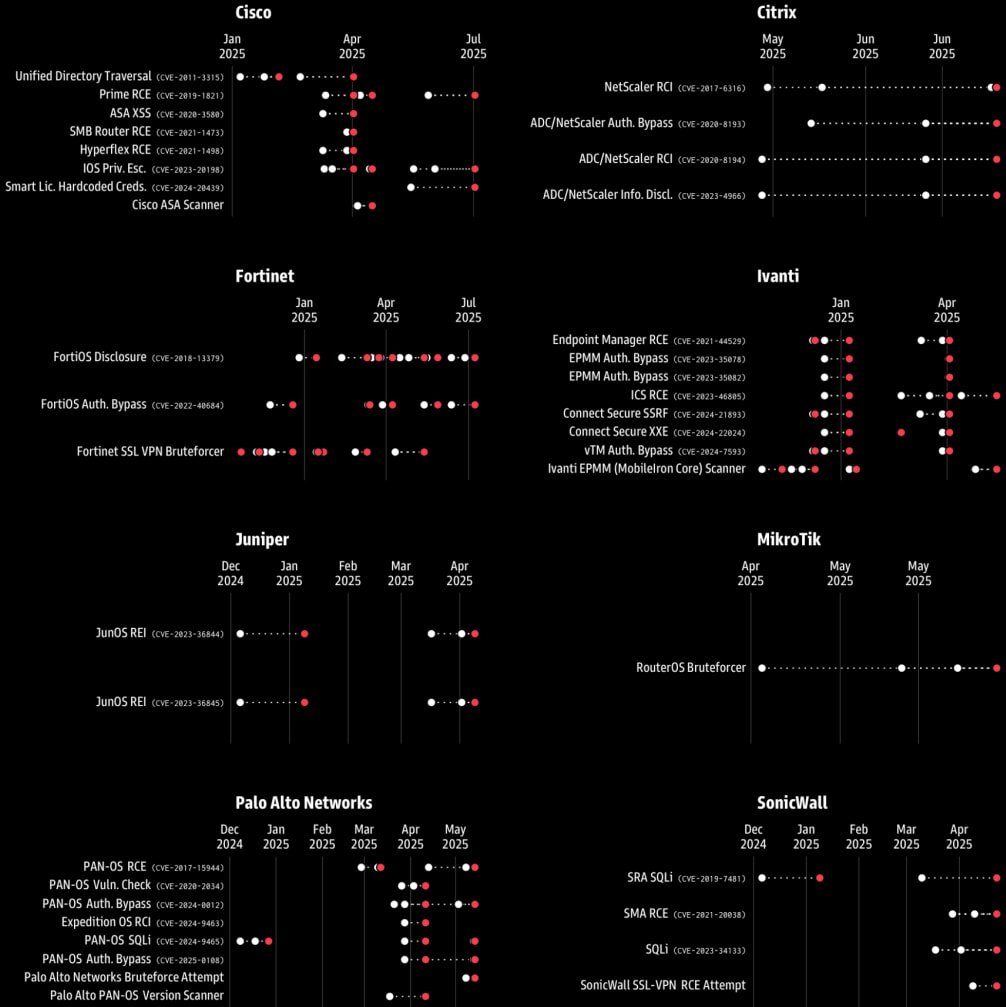Researchers discovered that in about 80% of circumstances, a surge in malicious exercise, comparable to community reconnaissance, goal scans and makes an attempt to brute-fasting on edge networking gadgets, was a precursor to disclosure of recent safety vulnerabilities (CVEs) inside six weeks.
This has been found by risk surveillance agency Greynoise, which experiences that these occurrences should not random, however is slightly characterised by repeatable, statistically important patterns.
Greynoise will keep away from suppressing outcomes by making use of goal statistical thresholds based mostly on “International Statement Grid” (GOG) information collected since September 2024.
After deleting the noisy, imprecise, and low-quality information, the corporate turned 216 occasions that qualify as a spike occasion tied to eight enterprise edge distributors.
“Throughout all 216 spike occasions we surveyed, 50% adopted a brand new CVE inside three weeks, and 80% inside six weeks,” the researchers clarify.
This correlation is especially robust in Ivanti, Sonicwall, Palo Alto Networks, and Fortinet merchandise, and weaker in Mikrotik, Citrix and Cisco. State-sponsored actors have repeatedly focused such techniques for early entry and sustainability.

Supply: Greynoise
Greynoise performs an attacker exploiting makes an attempt in opposition to previous identified flaws normally underlying these spikes.
Researchers imagine it will facilitate the invention of recent weaknesses or discovery of web publicity endpoints that may be focused on the subsequent stage of an assault.
“Mine Canary”
Historically, defenders responded after the CVE was printed, however Greynoise’s findings present that attacker habits is a key indicator and might be a software to prepare aggressive defenses.
These confidentiality spikes give defenders a window to arrange, monitor and improve the system in opposition to potential assaults, even when safety updates do not shield them and do not know which system elements or features are literally focused.
Greynoise recommends carefully monitoring scan exercise and rapidly blocking IPS of origin. That is to take away them from reconnaissance that usually results in precise assaults.
Because the attackers intention to catalog uncovered property, researchers emphasize that they’re anticipated to scan for previous defects in these circumstances. Due to this fact, they shouldn’t be ignored as a failed try to violate a completely patched endpoint.

Supply: Greynoise
Concerning associated developments, Google’s Mission Zero publicizes that it’ll start notifying the general public {that a} vulnerability has been found inside per week, with system directors stepping up defenses whereas system directors work on creating patches.
Mission Zero shares merchandise with distributors/tasks affected by new defects, discovery instances and disclosure deadlines (nonetheless 90 days).
As a result of Google lacks technical particulars, proof-of-concept exploits, or different data that would lean an attacker, this alteration is not going to negatively have an effect on safety, whereas additionally serving to to cut back the “patch hole.”



